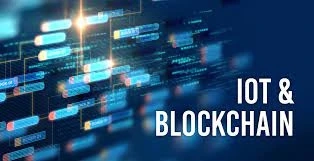Introduction
The integration of smart contracts and the Internet of Things (IoT) represents a promising frontier in the digital age. As technology advances, the convergence of these two innovations is poised to revolutionize industries by enhancing security, efficiency, and cost-effectiveness. This blog explores how smart contract development and IoT are shaping the future and the role blockchain development services play in this transformation.
Understanding Smart Contracts
Smart contracts are self-executing contracts with the terms directly written into code. They automatically enforce and execute agreements when predefined conditions are met, eliminating the need for intermediaries. This innovation, powered by blockchain technology, ensures transparency, security, and immutability in contractual dealings.
The Internet of Things (IoT): An Overview
IoT refers to a network of interconnected devices that communicate and exchange data through the internet. These devices range from everyday household items to sophisticated industrial machinery. IoT enables real-time monitoring, control, and automation, making it a cornerstone of modern technology.
Synergy between Smart Contracts and IoT
1. Enhancing Security
One of the critical benefits of combining smart contracts with IoT is enhanced security. IoT devices, though highly useful, are vulnerable to cyber-attacks due to their extensive connectivity. Smart contracts can secure these interactions by ensuring data integrity and preventing unauthorized access. The decentralized nature of blockchain makes it difficult for hackers to compromise the system, thereby safeguarding sensitive information transmitted between IoT devices.
2. Streamlining Operations
Smart contracts streamline operations by automating processes that typically require manual intervention. In an IoT environment, this automation extends to tasks such as device authentication, data sharing, and execution of complex workflows. For example, a smart contract can trigger an automatic order for replacement parts when a machine\'s sensors detect a malfunction, ensuring minimal downtime and efficient resource management.
3. Reducing Costs
By eliminating intermediaries and automating processes, smart contracts significantly reduce operational costs. In an IoT ecosystem, this cost efficiency is amplified. Businesses can save on administrative expenses and reduce the likelihood of human error, leading to more reliable and cost-effective operations.
Real-World Applications
1. Supply Chain Management
In supply chain management, the combination of smart contracts and IoT can offer unprecedented transparency and efficiency. IoT sensors can track goods in real-time, and smart contracts can automatically update stakeholders about the status of shipments, trigger payments upon delivery, and manage inventory levels. This integration reduces delays, enhances traceability, and ensures that all parties adhere to agreed-upon terms.
2. Smart Homes and Cities
Smart contracts and IoT are also transforming residential and urban environments. In smart homes, IoT devices like thermostats, lighting systems, and security cameras can be managed through smart contracts. These contracts can automate responses to specific conditions, such as adjusting the thermostat when no one is home or alerting homeowners in case of security breaches. Similarly, smart cities can leverage this technology to manage resources efficiently, control traffic, and provide essential services seamlessly.
3. Healthcare
In healthcare, the synergy between IoT and smart contracts is revolutionizing patient care and data management. IoT devices can monitor patients\' vital signs and send real-time data to healthcare providers. Smart contracts can manage patient records, automate billing, and ensure that data is only accessible to authorized personnel. This enhances the accuracy and security of medical information, leading to better patient outcomes.
6. Challenges and Considerations
Despite their potential, integrating smart contracts with IoT poses several challenges. These include:
- Scalability: As the number of IoT devices grows, managing the increased volume of transactions and data becomes challenging.
- Interoperability: Ensuring that different IoT devices and platforms can work together seamlessly is crucial for widespread adoption.
- Privacy: Balancing transparency with privacy protection in a decentralized system requires careful design and regulation.
- Legal and Regulatory Issues: As smart contracts operate across borders, they must comply with varying legal frameworks, which can complicate their implementation.
7. The Role of Blockchain Development Services
Blockchain development services play a pivotal role in harnessing the potential of smart contracts and IoT. These services provide the technical expertise needed to develop, deploy, and maintain blockchain-based systems. From designing custom smart contracts to integrating IoT devices with blockchain networks, blockchain development services ensure that businesses can leverage these technologies effectively and securely.
Key Services Include:
- Custom Smart Contract Development: Tailoring smart contracts to meet specific business needs.
- Blockchain Integration: Connecting existing systems and IoT devices to blockchain networks.
- Security Audits: Ensuring the robustness of smart contracts and blockchain systems against potential threats.
- Consulting: Providing strategic advice on implementing and optimizing blockchain and IoT solutions.
8. Conclusion
The convergence of smart contracts and the Internet of Things heralds a new era of innovation and efficiency. By enhancing security, streamlining operations, and reducing costs, this synergy has the potential to transform various industries. However, realizing this potential requires overcoming significant challenges and leveraging expert blockchain development services. As we move towards a more interconnected and automated future, the role of smart contract development will be crucial in shaping a secure, efficient, and transparent digital landscape.
By understanding and embracing these technologies, businesses can position themselves at the forefront of the next technological revolution, driving innovation and growth in an increasingly digital world.


